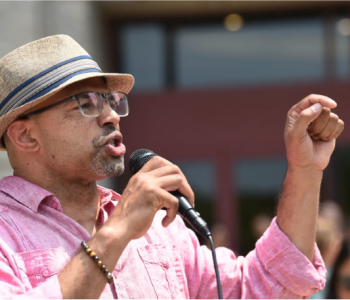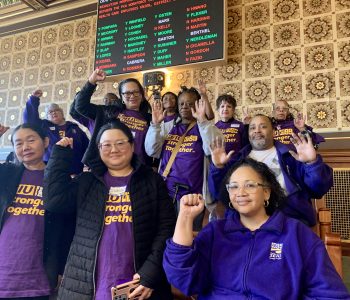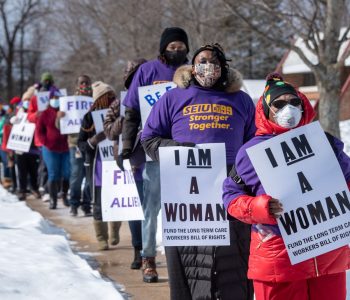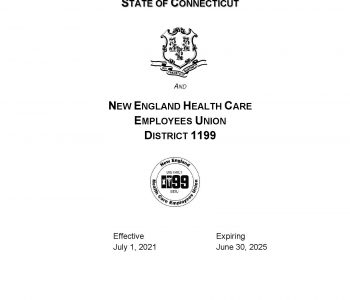State mental health workers participated in a car caravan Thursday to express their concerns over the growing denial of care services at the Department of Mental Health and Addiction Services and projected cuts as we face the COVID-19 pandemic.
Over 40 workers from DMHAS, including mental health workers, nurses, psychologists and other union health care workers, drove with signs on their cars to the DMHAS Central Office to call on the Commissioner to restore recent cuts to addiction services and expand mental health and addiction services during the COVID-19 crisis. The workers were joined by Senator Douglas McCrory of Hartford and Representative Quentin Phipps of Middletown.
“During the coronavirus pandemic, the need for services throughout the healthcare system has increased, including in mental health and addiction services,” said Georgina Rush, a supervising nurse at the Capitol Region Mental Health Center. “Yet the department is currently decreasing those essential services. We are here today to shine a brighter light on the services we provide and demand exploration on how those services could be expanded, not decreased, for the people we serve.”
“Prior to this pandemic, Connecticut Valley Hospital operated 110 substance abuse beds in Middletown. As of May 18, the DMHAS administration will reduce those beds from 110 to 12 beds,” said Michele Daniels, lead mental health worker with 31 years of state service. “Over the last 10 days, we have turned away 51 Connecticut residents seeking detox and rehab. There is a huge increase in demand for addiction services. It is our civic duty to serve the people of Connecticut suffering from substance abuse. Cutting services now is not a wise decision. The loss of beds makes getting treatment even harder than it was prior to the coronavirus pandemic.”
“Nursing home and mental health care workers are always facing risk in the line of duty. The people of Connecticut are seeing that risk much more clearly now. And the support for health care workers has been touching,” said Julio Reyes, mental health worker at River Valley Services. “We need to remember that before coronavirus showed up, we saw decades of service funding cuts to those who need them most. I’m here to say that frontline state workers shoulder the pain that so many of us in Connecticut are going through. We stand on the gap. The time has come for those who have profited the most to contribute their fair share, so that Connecticut can provide robust services for our health and safety, stimulating community resilience.”
“I am so proud to stand with Connecticut mental health and addiction services professionals as they advocate for their patients and clients,” said Representative Matt Ritter. “These dedicated professionals deserve our gratitude and support.”








